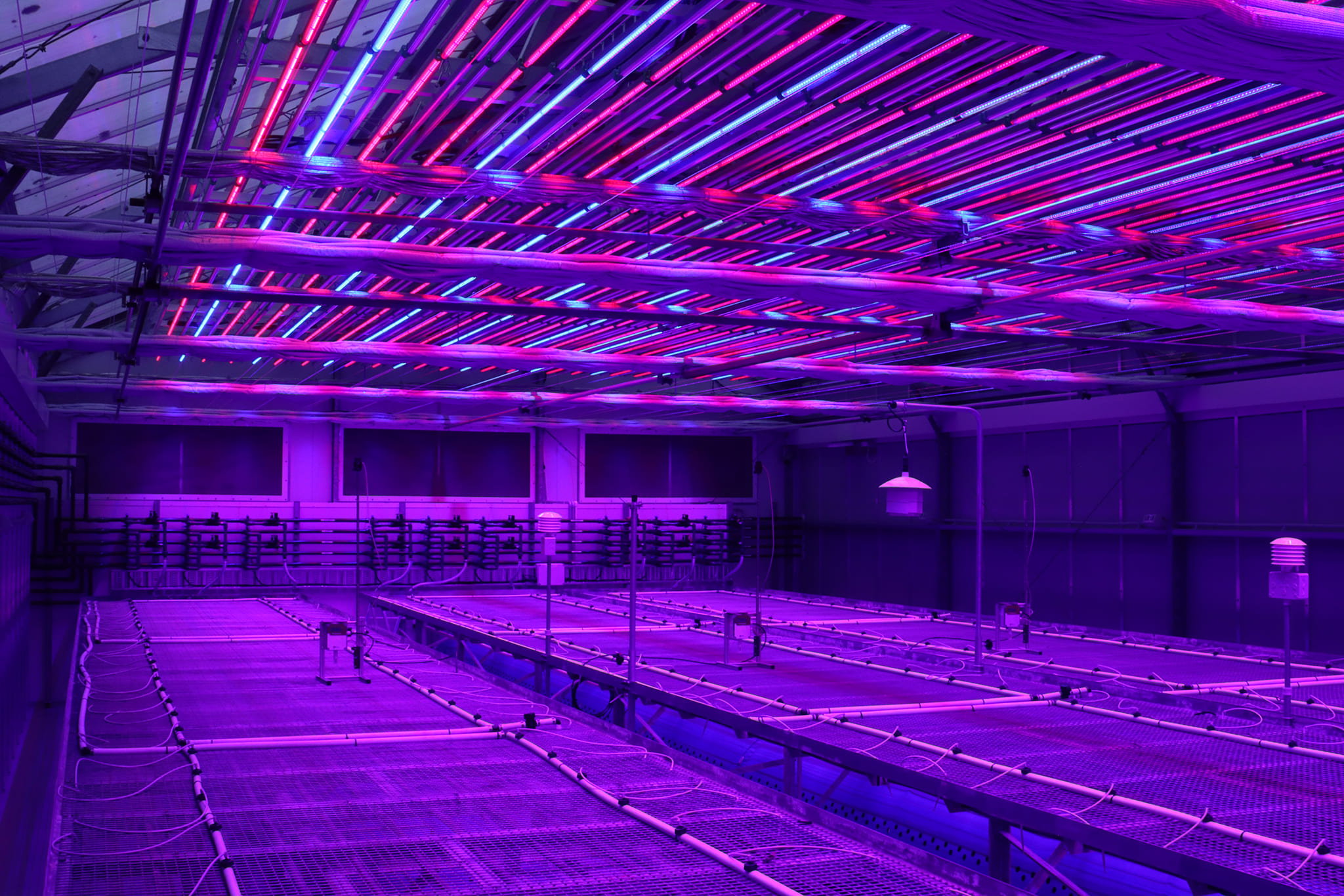
Research Themes
Cross-disciplinary Platforms: Technology, Education and Training
Bringing together diverse technologies to boost productivity, discovery and training within protected cropping systems.
The PC Hub is driving a transformation in Australia’s horticultural and medicinal agriculture industries by advancing protected cropping (PC) and improving sustainability, crop quality, yield, and reliability.
Through cutting-edge research and industry collaboration in 5 key areas, the PC Hub addresses critical knowledge gaps to unlock the full potential of PC systems.
Theme 1
Plant Health – Nutrition, Physiology and Biosecurity
Through the integration of phenotyping, automation, robotics, and big data analytics, including machine learning and artificial intelligence, valuable insights are gained from extensive plant imaging datasets. These insights are crucial for early detection of pests and diseases, as well as optimizing yield and quality in horticultural and medicinal plants.
The data generated through these efforts are interconnected with various factors such as plant nutrition, cultivation practices, genetics, and ‘omics measurements (transcriptomics, genomics, metabolomics, proteomics). Using exemplar species like tomato and cannabis, as well as emerging species like sweet basil, this theme aims to achieve optimal production through a holistic approach to plant health and productivity.
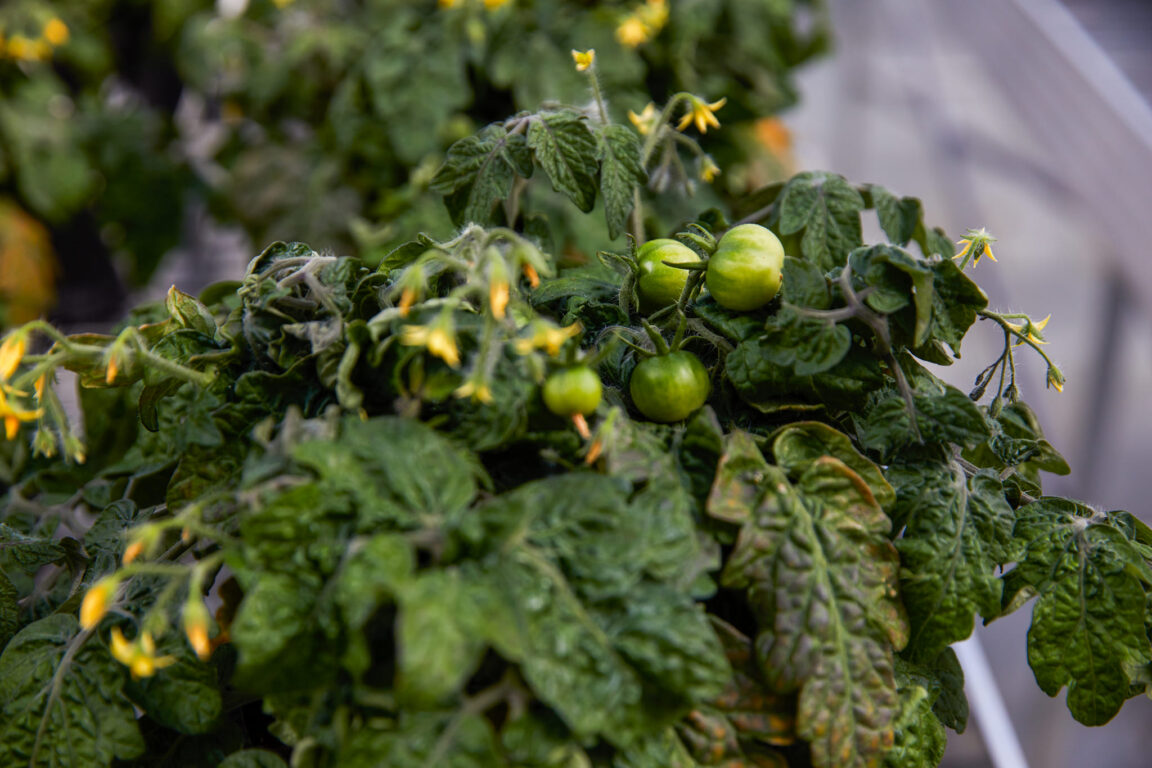
In Theme 1, we’re using controlled environments to study how to boost plant growth and improve their qualities, such as yield, nutrition, or resilience.
Theme Leads

— A/Prof. Anthony Gendall (LTU)

— A/Prof. Kim Johnson (LTU)
Theme 2
Plant Breeding – Rapid Candidate Gene Identification, Validation and Engineering
Most crops currently grown in protected cropping (PC) systems were originally developed for open-field agriculture. As a result, many are not optimised for the controlled environments, vertical configurations, or accelerated production cycles typical of modern PC facilities.
This mismatch creates a major opportunity: to tailor crop genetics and traits specifically for protected cropping, enhancing performance, yield, and quality in these systems. PC environments also enable the cultivation of more delicate or heirloom varieties by shielding them from environmental stressors.
Theme 2 of the Hub focuses on developing rapid, generalisable, and species-agnostic approaches to:
- Identify candidate genes linked to commercially valuable traits, and
- Create new crop cultivars optimised for PC environments.
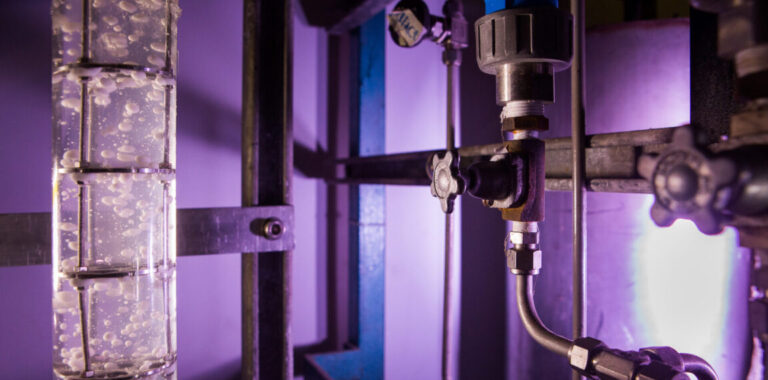
In Theme 2, we’re developing fast, flexible methods to identify key genes that affect valuable traits in crops. This will help us create improved crop varieties that grow well in protected cropping systems, such as greenhouses or indoor farms.
Theme Leads

— Prof. Monika Doblin (LTU)

— Prof. Mathew Lewsey (LTU)
Theme 3
Waste Valorisation – Extraction and Processing Technologie
In protected cropping systems, plant cultivation is highly controlled to maximise yield and product quality. This includes not only the main harvestable products but also the biological by-products, which often make up a significant portion of the total plant biomass.
Unlike broadacre farming, the controlled conditions in PC systems result in biological waste that is typically cleaner and more uniform, with fewer chemical or biological contaminants, or at least with these factors better understood and monitored. This makes the waste a valuable feedstock for valorisation: the process of converting organic plant waste into useful by-products.
Valorisation can help transform waste into an economic opportunity. By processing biomass through biorefineries, it’s possible to extract or convert it into a wide range of valuable products, such as bioplastics, bioenergy, plant-based chemicals, or specialty compounds. This supports a circular economy by reducing waste, lowering greenhouse gas emissions, and increasing the overall value generated from crop production.
However, regulatory frameworks can limit how certain types of waste can be reused. In theme 3, we’re aiming to develop biorefinery-based solutions that meet sustainability, industry, and regulatory requirements for a variety of crops, including those with higher compliance needs.
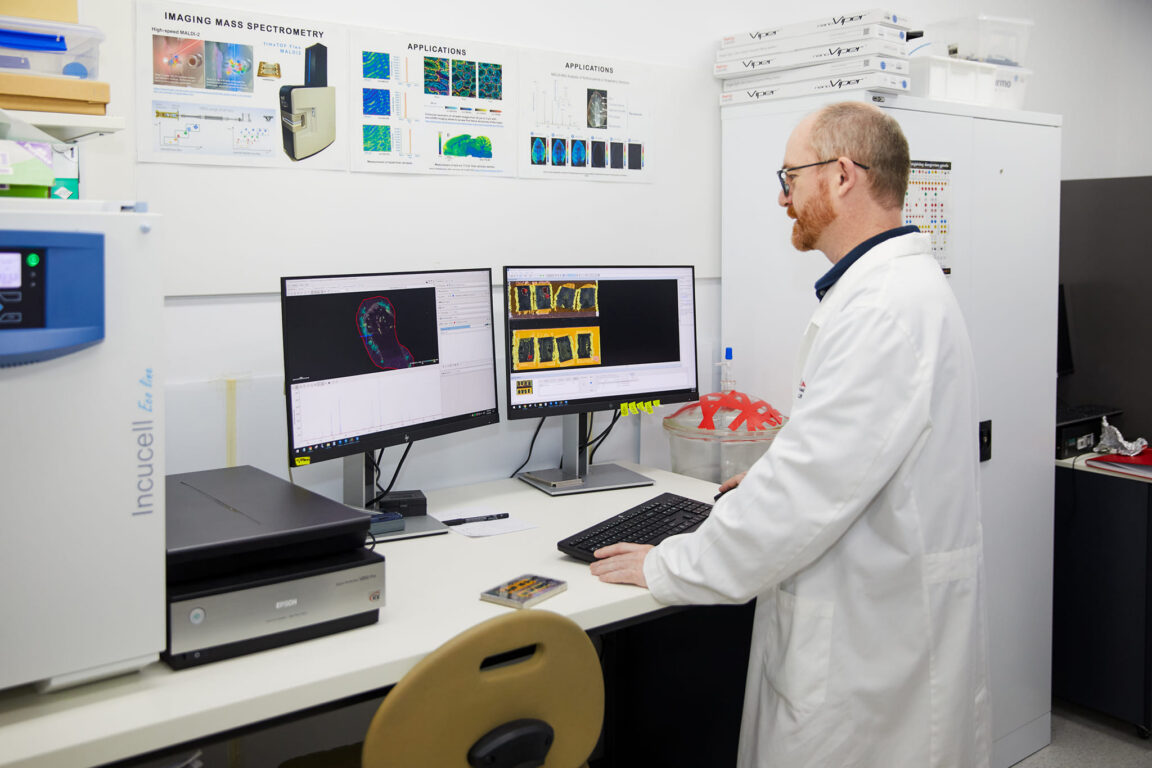
In Theme 3, we’re developing biorefinery-based solutions that support sustainability and meet industry and regulatory standards, especially for crops that require strict compliance.
Theme Leads

— Prof. Monika Doblin (LTU)

— Prof. Kathryn Mumford (UoM)
Theme 4
Digital Agriculture and Machine Learning
The data produced using our advanced phenotyping infrastructure has the potential to greatly advance development of solutions for PC but is highly complex and consequently slow and challenging to interpret.
Building upon innovations and successes from the Cisco -La Trobe Centre for AI and IoT, we will fuse and analyse a diverse range of data from multiple sources via advanced AI/ML methodologies and data analytics techniques to optimise and further enhance our plant phenotyping capabilities.
Outcomes of Theme 4 will facilitate and improve data-driven decision-making by and for researchers, PC facility operators, exporters, retailers, consumers and policy makers.
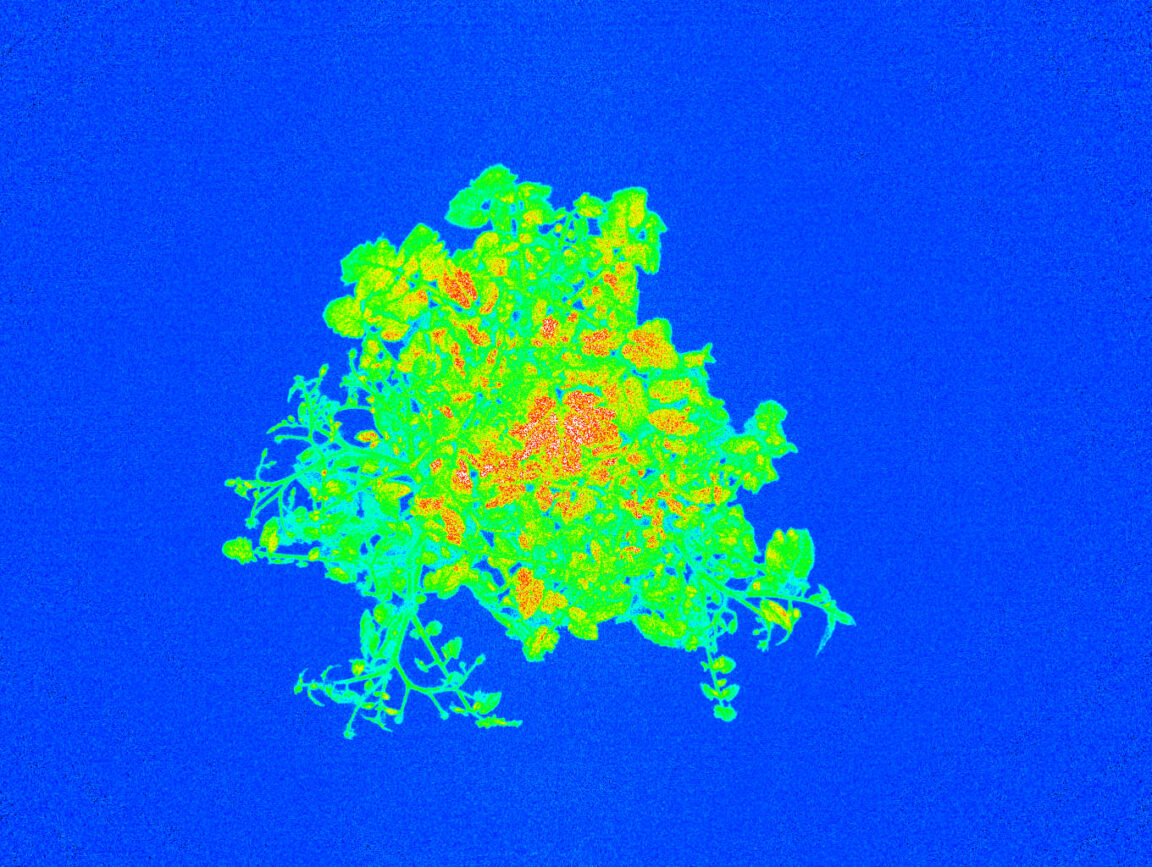
In Theme 4, we’re using the latest advances in artificial intelligence (AI), machine learning (ML), and smart technologies (IoT) to improve the entire protected cropping system, from research and production to the final product reaching consumers.
Theme Leads

— Prof. Wei Xiang (LTU)
Theme 5
Plant Bioactives – Mechanisms of Action
This research builds on the work of Theme 3 by focusing on waste biomass, an underutilised resource in most agricultural systems. In PC environments, this biomass can be repurposed to extract high-quality bioactives efficiently and sustainably.
Plants and mushrooms are known to produce a wide variety of bioactive compounds with promising antioxidant, antimicrobial, anti-inflammatory, anticancer, antidiabetic, and prebiotic properties.
These compounds have potential applications across human health, veterinary care, nutrition, and wellness sectors.
Despite this potential, much remains unknown about how these bioactives work, especially when present in complex mixtures. Theme 5 aims to develop and apply advanced screening systems to identify key bioactives, understand their modes of action, and assess their effectiveness across different use cases.
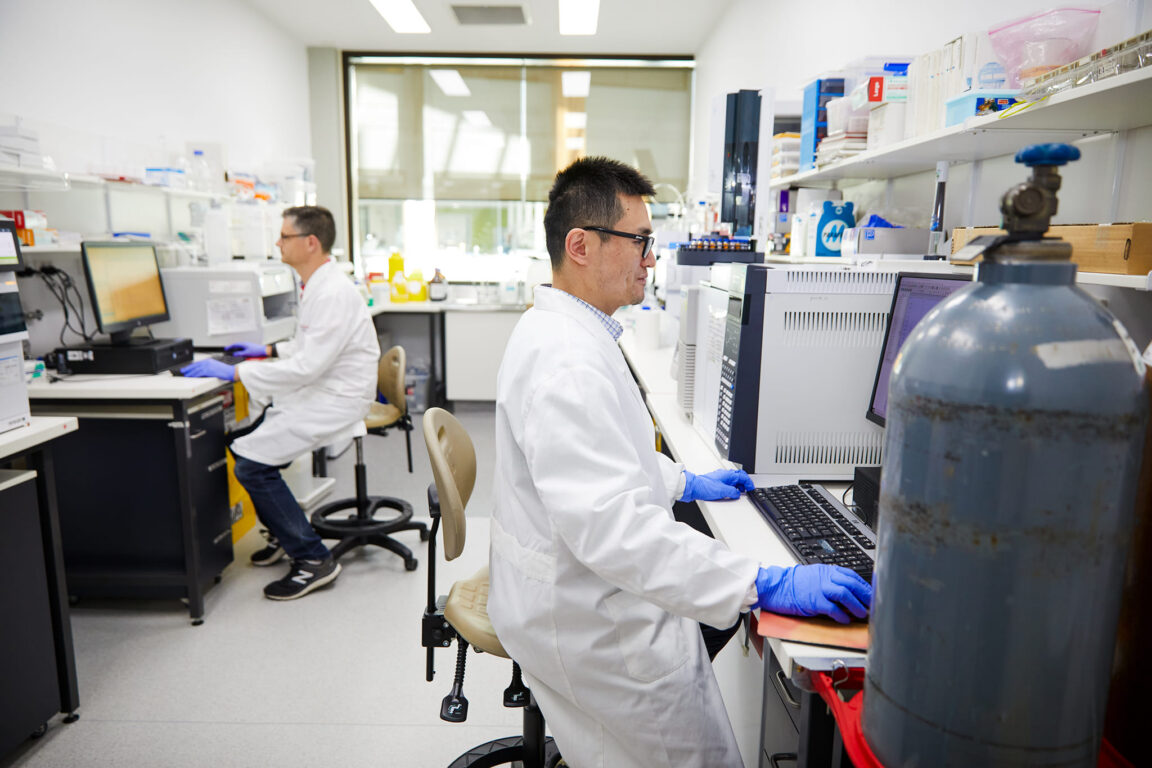
In Theme 5, we’re exploring how protected cropping systems can be used to reliably grow plants and mushrooms that produce valuable natural compounds, substances that may have health, therapeutic, or commercial benefits.
Theme Leads

— Prof. Ross Bathgate (The Florey)

— Prof. Travis Beddoe (LTU)
